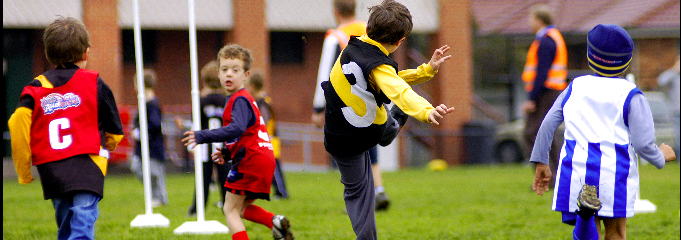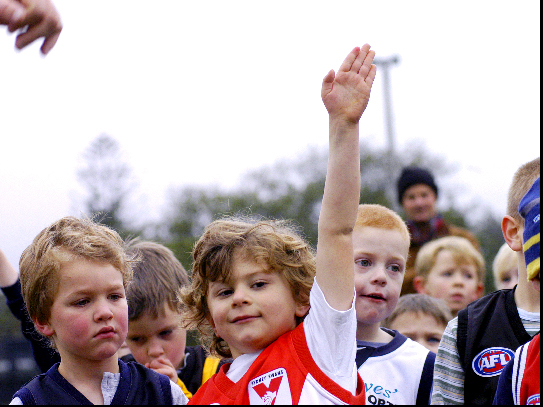
Safeguarding Children and Young People in Sport

This article is authored by Monique Blom, National Manager,
Safeguarding Children Program at the Australian Childhood Foundation.
The Australian Sports Commission (ASC) and the Australian Childhood Foundation (ACF) are excited to commence working toward child safety in sport through the establishment of a partnership which aims to review, analyse and commence next steps for implementing a safeguarding approach to children and young people, based on the endorsed standards of the ACF Safeguarding Children Program.
The Safeguarding Children Program helps organisations to implement best practice policies and standards to protect children and young people in their care. The Program also helps organisations promote a culture that protects children and young people from abuse and exploitation.
This Program is a unique voluntary organisational development scheme for organisations who take seriously their duty of care to children and young people, as well as their families and community. The Safeguarding Program will assist the ASC to systematically increase its capacity to keep children and young people safe from abuse and exploitation while they participate in sporting activities across Australia.
The ACF Program personnel will support the ASC to:
- enhance the collective culture across all Australian Sports to safeguard children and young people;
- explore strategies and a best approach for how all staff, management and volunteer members of Sports across Australia can better safeguard and respond to children and young people into the future.
What needs to be addressed to make Australian sport safer for children and young people?
There is currently no robust national strategy to support child protection in sport. To date, each of the jurisdictions have been left to develop their own approaches based on the prominent political and community context in each state and territory. Much has been made of education as the basis for building capacity in this area. Yet, there is wide variability in the understanding, confidence and behaviour of those involved in sport to create and ensure child safe environments at a local level where the sport is actually played and administered.
 The ASC has used its authority as a funder and regulator of sport to implement a Member Protection Policy which has served to embed a movement towards child safety into the fabric of the way junior sport is run and experienced. This compliance oriented strategy has achieved results with all publicly funded sports having in place at a national level, some form of child protection policies through the broader Member Protection Policy framework. However, there is little evidence as to how influential and well known these policies are. The exception is the wholescale uptake of the Working with Children Checks as required through legislation in all jurisdictions as a prerequisite for working with children and young people.
The ASC has used its authority as a funder and regulator of sport to implement a Member Protection Policy which has served to embed a movement towards child safety into the fabric of the way junior sport is run and experienced. This compliance oriented strategy has achieved results with all publicly funded sports having in place at a national level, some form of child protection policies through the broader Member Protection Policy framework. However, there is little evidence as to how influential and well known these policies are. The exception is the wholescale uptake of the Working with Children Checks as required through legislation in all jurisdictions as a prerequisite for working with children and young people.
A strategic framework for protecting children is needed that is nationally defined and locally embedded with due reference to state and territory legislation and regulations. The national framework requires a cohesive narrative that can be communicated clearly to a range of audience groups ranging from the leadership of National Sports Organisations (NSOs) all the way to the participants of junior sport itself and will shape the attitudes, values and behaviour of Australian Sport.
The framework should integrate education, compliance and consumer oriented initiatives as the basis for building the capacity of Australian Sport to be child safe.
A national strategic framework represents the opportunity for an organisational change management action plan. Change management applies a systematic approach to transitioning organisations from where they are to where they need to be in order to more effectively addressing an issue or problem or meet a need. An effective change management strategy builds commitment, minimises resistance and helps individuals/teams to develop the required knowledge and ability to implement the change.
As a change management plan, the national framework must be sustainable over time and be anchored to structures and processes that are independent of the people who are the decision makers over today. It cannot be person contingent. It will set the direction for change to occur over 10 year time frame and deliver annual outcomes integrated to the long term vision.
The first step forward 2016
Under the umbrella of the ASC and the National Safeguarding Children in Sport Strategy (NSCSS) Industry Working Group, first steps in the development of a national framework must include an accurate understanding of sporting organisations and their current capacity to protect children from harm.
There is significant disparity in the awareness of different sports regarding safeguarding children, with some, despite best endeavours having no awareness, and therefore no responsiveness to the issue. There is a belief that harm cannot happen to children and young people involved in their sport and often a fear of addressing issues. In some sports there are no adequate processes and procedures, resources or supports, particularly for smaller clubs to ensure they feel confident in their capacity to address and prevent incidents.
Undertaking an evaluative process to scan across all sports to look at their individual capacity is the first step in working toward a national framework. Through the Safeguarding Children Program, ACF will work alongside the ASC member organisations to undertake this audit and provide individual NSO’s with the analysis to assist in strategy development in moving toward child safety.
The collection of this data will assist in establishing an understanding of the gaps and need as well as identification of what can be achieved through the application of ACF Safeguarding Children tools. Organisational self-evaluation tools will also be developed and implemented to allow organisations to maintain a clear direction and control over their progress toward child safety.
ACF will work with ASC, National and State Sporting Organisations, State and Territory Departments of Sport and Recreation and affiliated networks to institute effective and consistent communication strategies, identify strengths and requirements and undertake comprehensive planning to ensure that a culture of ongoing improvement to protect children and young people is achieved effectively and efficiently.
This is an exciting step forward!
